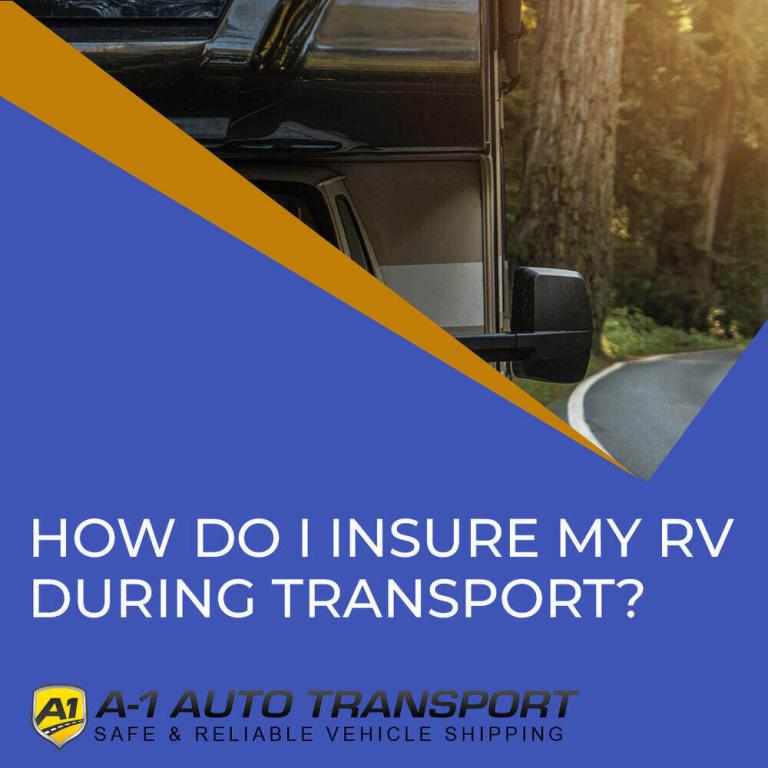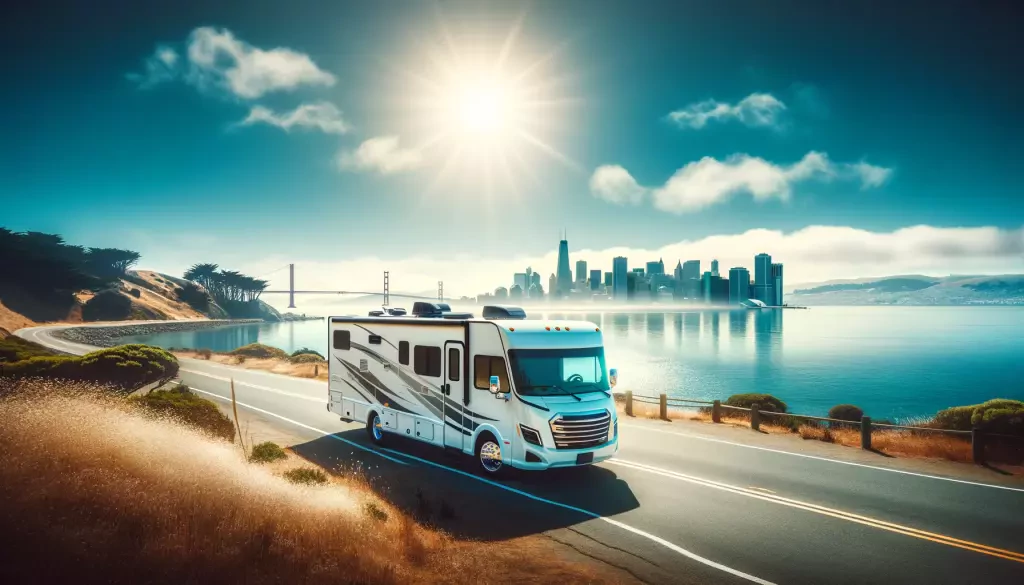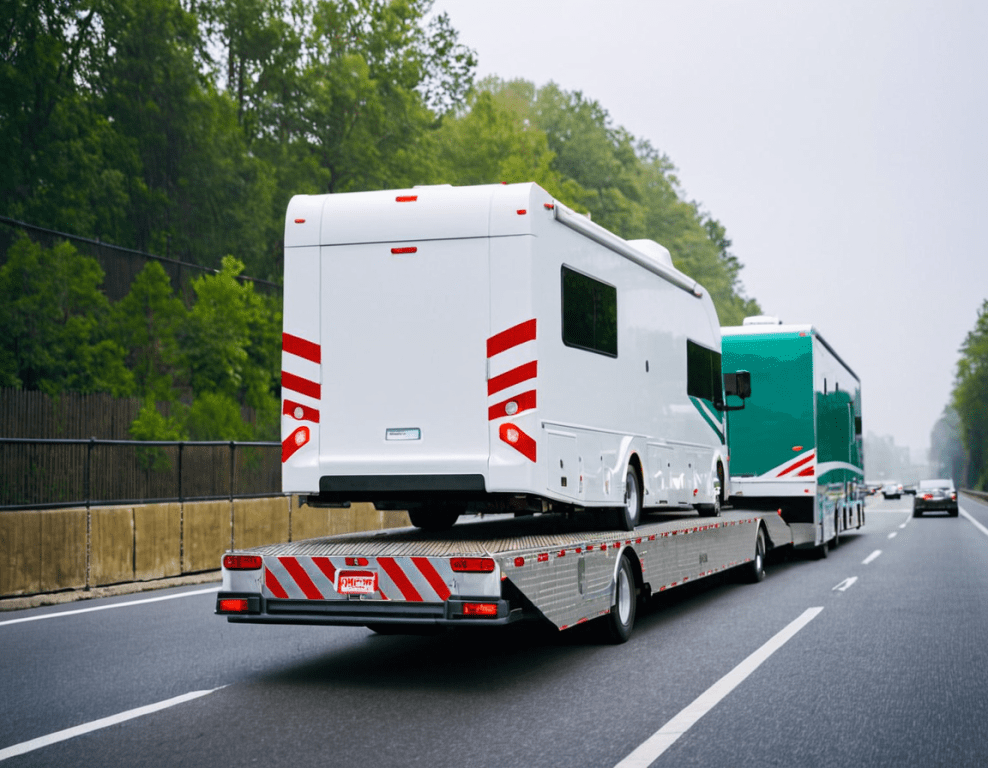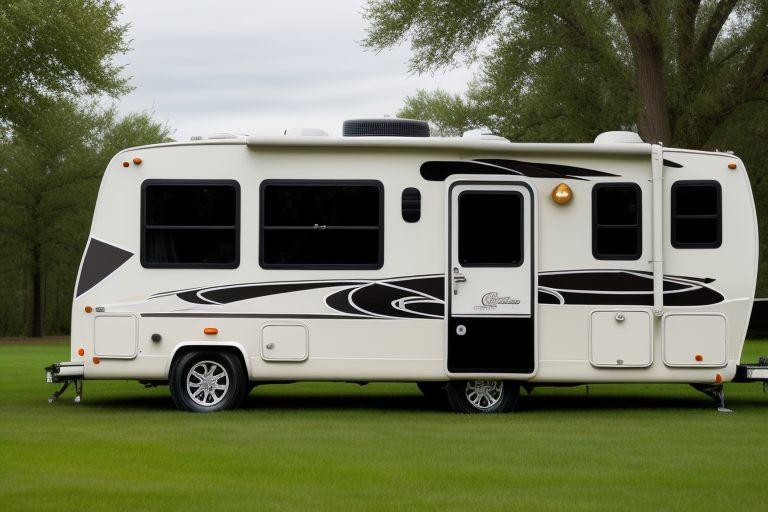
Ensuring your RV is covered during transport is crucial for safeguarding your investment. Several types of insurance can help protect your RV. Carrier liability insurance provides basic coverage for any damage caused by the transport company's negligence, but it's limited. That's why many RV owners opt for additional temporary transit insurance. This specialized RV insurance policy supplements carrier coverage, offering broader protection for potential transport-related incidents like accidents or theft.
In addition to external policies, review your existing RV insurance to identify gaps in coverage during transport. Some auto insurance plans, particularly personal auto insurance, might not extend to RV transport situations. Therefore, it's essential to confirm what's included under your current policy and ensure that comprehensive insurance coverage is in place before transport. Contact your insurance company to understand the coverage available under your policy and whether any modifications or additional policies are required to meet your unique needs.

Understanding Your Current RV Insurance Coverage
Standard RV insurance policies often provide comprehensive and collision coverage but may have limited applicability during transport. They generally cover road accidents, natural disasters, vandalism, and liability for third-party injuries or property damage. However, liability insurance may not fully extend to incidents while the RV is being transported by a third-party carrier, leaving gaps in liability coverage.
Review your current RV insurance cover by consulting directly with your insurance company or agent. Clarify how it interacts with the transport company's liability insurance and identify potential gaps. Understanding the limits of your current auto insurance or RV policy will highlight any shortcomings that could expose you to financial losses. Many RV insurance companies offer temporary transit policies that can fill these gaps, offering peace of mind while your RV is on the road.
Check RV insurance costs for potential policy upgrades or additions to ensure your RV is comprehensively protected. Properly reviewing your RV insurance will prevent unexpected expenses and guarantee your prized vehicle arrives safely.
What is Unladen Insurance for RV Transport?
Unladen insurance refers to a specialized insurance policy covering an RV or recreational vehicle when it's being moved but not actively used or carrying passengers. This type of insurance coverage primarily protects against property damage and theft during transit. It serves a vital role in RV transport by ensuring that even though the RV is not in active use, it remains safeguarded.
RV owners should consider unladen insurance if they're shipping their vehicle across long distances using a transport company. With this insurance, their RV is protected against unforeseen risks such as accidents or environmental damages during the trip. Unladen insurance provides the financial security necessary to prevent significant losses during the vehicle’s transport. Moreover, it's crucial for maintaining RV safety during periods when the RV is vulnerable due to non-usage. Although most carriers carry liability coverage, these policies often have limitations that unladen insurance can bridge. Securing this form of insurance ensures financial protection for your RV while in transit, offering peace of mind during the move.

How Does Travel Trailer Insurance Work?
Travel trailer insurance is a specific type of RV insurance designed to provide coverage for travel trailers that are towed rather than self-driven. This insurance policy offers protections like collision coverage, comprehensive coverage, and liability coverage similar to motorhome policies, but tailored for the unique challenges of towing.
Key features include protection against property damage due to collisions, vandalism, or natural disasters. Additionally, medical payments coverage ensures that injuries sustained while towing are also covered. While most RV insurance policies include roadside assistance, those for travel trailers may provide unique services like towing or assistance with the trailer's structure.
There are key differences between standard RV insurance and travel trailer policies. The latter often has a lower RV insurance cost due to being towed rather than self-driven. Travel trailers have unique risks that require specialized coverage, particularly during transport by a third-party carrier. Evaluating these differences will help determine the best insurance coverage for your travel trailer's specific needs.
Do You Need Separate Insurance on an RV?
Yes, securing dedicated RV insurance is essential beyond standard car insurance because recreational vehicles face unique risks. Standard auto policies often don't extend comprehensive coverage to RVs, which makes specific RV policies crucial. A specialized RV insurance policy typically includes liability coverage, collision coverage, and comprehensive coverage to handle potential risks like road accidents, theft, and natural disasters.
RV insurance policies also offer additional protections like roadside assistance, vacation liability, and medical coverage. Most RV insurance policies even offer discounts if you take an RV safety course. Dedicated RV policies ensure financial protection during RV transport as well, securing your investment while in transit. They also offer more accurate coverage since insurance agents assess the value and use of the RV specifically.
While RV insurance costs may seem like an added expense, the enhanced insurance coverage and specialized protections provide peace of mind, making it an essential investment for any RV owner. Talking to an insurance agent can help you find the right policy for your RV, ensuring comprehensive coverage that aligns with your travel and usage needs.

Do You Need Collision Insurance on a Travel Trailer?
Collision coverage is an essential part of RV insurance, offering protection against damage due to accidents. For travel trailers, collision insurance is particularly important during transport. This insurance coverage pays for the repair or replacement of your trailer if it's damaged in an accident, whether it's being towed by you or transported via a transport company.
During transport, the risks of collision and property damage are high due to the trailer's size and the challenges of hauling it safely. Even with liability coverage, RV owners could still face significant out-of-pocket expenses if their trailer is damaged and they don't have collision coverage. This insurance integrates with liability by covering your trailer's repair costs regardless of who was at fault, providing financial protection against unexpected repair expenses.
Most RV insurance policies offer collision as a standard feature, but confirming its inclusion in your RV insurance policy is crucial. Speak with your insurance agent to ensure adequate coverage levels, especially if your travel trailer is valuable or you frequently transport it. By understanding and securing comprehensive collision coverage, you'll better protect your investment.
Choosing the Right Insurance for RV Transport
When evaluating RV insurance needs for transport, consider these key factors:
- Distance of Transport: Long distances require thorough insurance coverage due to increased exposure to risks like road hazards.
- Value of the RV or Travel Trailer: Higher-value recreational vehicles require higher coverage levels to ensure full protection.
- Potential Risks: Consider adverse weather conditions, challenging routes, or security threats at the destination.
Tips for comparing insurance offerings:
- Research Multiple Providers: Gather quotes from various insurance companies to compare rates and coverage.
- Understand Policy Exclusions: Carefully review policies for exclusions like natural disasters or storage conditions.
- Assess Additional Services: Look for policies that include roadside assistance and medical payments coverage.
Be mindful of exclusions, such as conditions that void the policy or limits on compensation for certain events.
Steps to Insure Your RV During Transport
Here's a checklist to ensure comprehensive RV insurance for transport:
- Contact Your Provider: Review your current insurance policy and discuss potential adjustments with your insurance agent.
- Evaluate Supplemental Options: Research insurance companies specializing in RV safety to find tailored, short-term insurance for transport.
- Finalize Additional Coverage: Select a comprehensive RV insurance policy that includes collision coverage, roadside assistance, and more to meet your specific needs.

Dealing with Claims: What to Do in Case of Damage
If damage occurs during transport, follow this guide to handle claims effectively:
- Immediate Steps: Notify your transport provider and insurance company as soon as possible. Take photos of the damage for documentation purposes.
- Required Documentation: Gather evidence like inspection reports, the original contract, and photos. This paperwork helps validate your claim.
- Initiating a Claim: Start the claim process by contacting your insurance agent or the provider's claims department. Submit all documents to speed up processing.
Following these steps will increase your chances of a quick resolution, ensuring that any damage sustained is covered and repairable with minimal hassle.
Conclusion
Securing comprehensive insurance coverage for your RV during transport is crucial for protecting your investment against potential risks like accidents and property damage. By understanding your specific needs, comparing RV insurance policies, and ensuring adequate liability coverage, you'll have peace of mind throughout the journey. For expert advice and support in securing the best coverage, reach out to A1 Auto Transport. Their experienced team will guide you through the options to ensure your RV is fully protected while in transit. Contact them today to arrange secure, reliable transport for your RV.






 Share on Facebook
Share on Facebook Share on LinkedIn
Share on LinkedIn Share on Twitter
Share on Twitter




 Google
Google  Instagram
Instagram  Trustpilot
Trustpilot 



